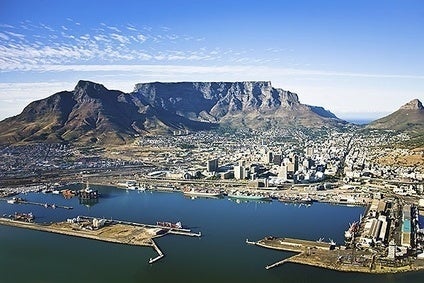Is the National Union of Metalworkers of South Africa (NUMSA) interested in promoting its members’ conditions and working with employers in a country where union rights for all are still a relatively fledging concept, or is it more concerned with establishing some sort of Marxist State?
In any other context that might sound far-fetched and ridiculous but this is South Africa where NUMSA is now routinely holding the automaking – with a knock-on effect for myriad other component and energy industries to boot – to seeming regular virtual ransom as it tips yet another wheelbarrow of demands onto employers’ laps.
Only last year, South Africa was rocked by two colossal industrial disputes orchestrated by NUMSA, which firstly saw 31,000 automaking staff walk out, swiftly followed, in a matter of days, by a second vast strike involving 71,000 staff in the component, petrol retailing, panel beating and dealership sectors.
On each occasion, NUMSA put forward huge claims, which were partly met by the employers and eventually staff returned to work, but the legacy of resentment is only ever just simmering under the surface.
Or is it being whipped into a frenzy by NUMSA’s leadership, which has now embarked on yet another vast strike, this time involving 220,000 metalworkers that has directly affected many component makers and in turn OEMs, who have either been forced to idle or slow down production.
The National Association of Automobile Makers of South Africa (NAAMSA) director, Nico Vermeulen, tells me five out of the country’s seven automakers have been obliged to do just that, dealing yet another hammer blow to a sector only just licking its wounds from the last devastating industrial action.
NUMSA has some genuine, legitimate grievances that include a hangover from South Africa’s apartheid past that sees communities living far from their place of work, earning relatively low wages and never far from the spectre of unemployment, which the union tells me from Johannesburg, is nudging 50% in some cases.
But the labour body’s pumped-up rhetoric speaks of a different age, a vision whose time may have been relevant at one point, but which now comes across as archaic and rooted in an unyielding refusal to bend.
This is one of NUMSA’s more moderate takes on its latest metalworking walk-out: “The toiling black and African working class sells its labour power for a pittance,” swiftly followed by: “We refuse to be blackmailed by self-anointed spokespersons of the bosses, that our legitimate strike will plunge the economy and the country into a recession.”
The text addressing the three-week old strike then plunges straight into Marxist critique of “colonial wage structure” and “agents provocateurs,” words right out of old Soviet Union lexicon.
This is all laced with a reference to an apartheid past that surely has no place in a modern South Africa – the country while still economically divided surely cannot constantly continue to look into its history as a guide to what is happening today.
But that comment about ‘plunging the economy into a recession’ is interesting.
NUMSA has clearly thought about the impact of what it is doing and has prepared some ammunition to fight against some pretty nervy carmakers, anxious not to see a flight of automotive know-how drain out of South Africa.
It’s only understandable those automakers are becoming twitchy. This from Vermeulen to me in Johannesburg: “The automotive sector just cannot continue to cope with disruptions of this nature,” he says.
“The indirect, negative fallout reflects poorly on South Africa’s track record as a reliable supplier to international markets.
“Quite clearly, this is simply not sustainable. Something has to be done to ensure the automotive sector can [work] normally and efficiently.”
Quite apart from NUMSA’s rhetoric the latest wave of industrial unrest – which also threatens to drag in the energy and mining sectors – has spooked the politicians enough to see the government in the guise of the Labour Ministry now become firmly involved.
Pretoria apparently wants a tri-lateral approach of unions, industry and government to sit down and thrash out a framework for the future.
If South Africa merely continues on this endless merry-go-round of interminable strikes, international investors may shrug their shoulders and move elsewhere, either on the African Continent or perhaps anywhere in the world with more stable industrial relations.
The right to strike is a democratic freedom to cherish – it is the ultimate weapon a labourer has – but it surely has to be an option of last resort.
Used time and again, it becomes self-defeating and will actually make worker conditions worse.
There have to be better ways than simply walking out with increasingly regularity and NUMSA needs to see the woods for the trees or be subsumed by a political straitjacket belonging to a different age.
An irony is when I talk to NUMSA it is the epitome of reasonableness – measured but sincere. Only today (17 July), its head of collective bargaining, Stephen Nhlapo, was telling me employers should ‘play the ball, not the man.’
But the difference between that stance and its public utterances are stark indeed.
If South Africa is to escape this endless circular series of walk-outs and boiling industrial unrest, unions such as NUMSA have to take the lead and start talking to its membership in tones that smack of pragmatic economics rather than revolutionary fervour.







